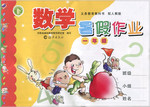题目内容
短文改错
My father is a good husband who usually goes to work at 7 am and come back at 7 pm on time. Besides, yesterday evening, he didn’t come back as usual. So we waited him to have supper in the sitting room. But he still didn’t show up after two hours. Worrying about him, Mom tried to get in a touch with him. But there was not answer on the phone. Three hours late, there was finally a knock on the door. Mom ran to it in angry. When she opened the door, Dad appeared, completely drunk. Mom was about to shout at him while Dad shouted loudly, “I love my wife.” He repeated this sentence again and again. Heard this, Mom took Dad to the bedroom and put him in bed gently with a smile on his face.
练习册系列答案
 暑假作业海燕出版社系列答案
暑假作业海燕出版社系列答案
相关题目

